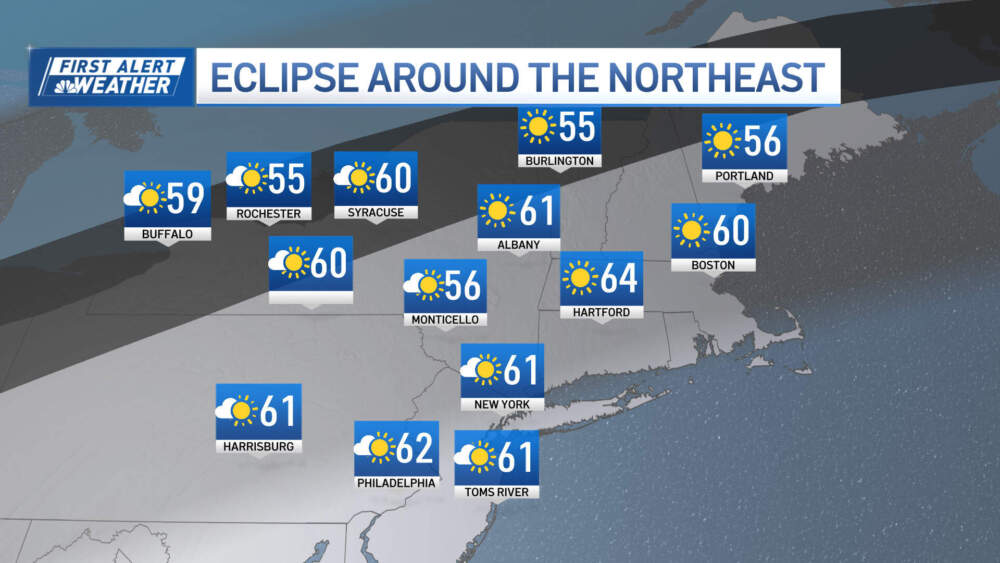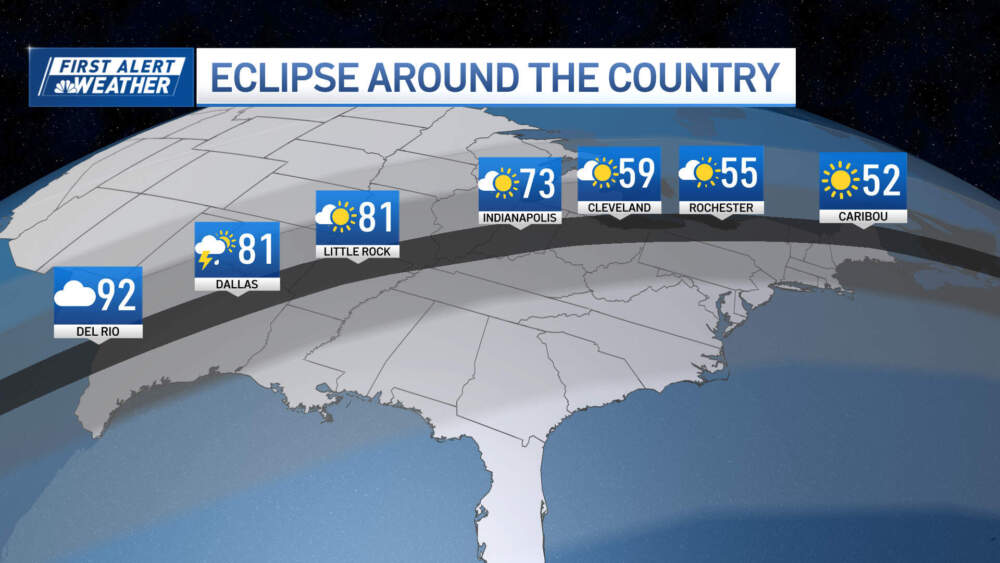Advertisement
Forecast: Expect clear skies in New England for the total solar eclipse
A rare celestial spectacle is set to grace the skies on April 8: a total solar eclipse.
It's New England's turn to be in the spotlight — or rather, the shadow. Those in northern Vermont, New Hampshire and Maine will glimpse the full majesty of a total solar eclipse. (Check out WBUR's guide for more information about where to get the best views.)
For approximately two to three minutes, the moon will block out the sun completely, transforming daytime into an eerie twilight. In these moments of totality, the sun's corona (or outermost layer) will be visible.
Viewing the eclipse will depend upon one very important factor: cloud cover. Remarkably, New England and the Northeast United States looks like it will have mostly clear skies Monday afternoon.
Here's a look at high temperatures for Monday. If you're heading up to Burlington, Vermont expect temperatures in the mid-50s. Boston will be closer to 60 degrees.

Unfortunately for those trying to view the eclipse from other parts of the country, there are less than ideal conditions. A storm system in the middle of the country stretching from Mexico into the Ohio Valley will result in a partially, if not totally, obscured view of the sun.

A few other things to note if you're in the path of totality:
- How dark is it going to be? The sky will darken dramatically, similar to twilight. This can last several minutes.
- Will it get colder? As the moon hides the sun, there might be a slight dip in temperature, by a few degrees.
- Will I see stars? For a brief moment, you might be able to!
- What's up with my dog? Animals may become confused by the sudden darkness and act strangely for a short time.
Reminder: Never attempt to look directly at the sun. The sun's intense rays can permanently damage your eyesight. To safely observe the eclipse, use certified eclipse glasses specifically designed for this purpose. These glasses filter out harmful solar radiation.
If you miss this opportunity, the next time our region of the world will experience a total solar eclipse will be May 1, 2079. That one will occur around sunrise and just barely scrape portions of the northeast, including Boston. Whether you're in the path of totality or witnessing the partial eclipse, look up to catch a rare glimpse into the wonder of the universe.